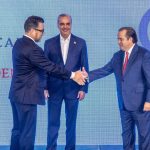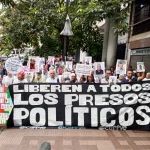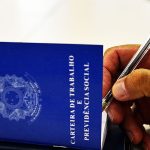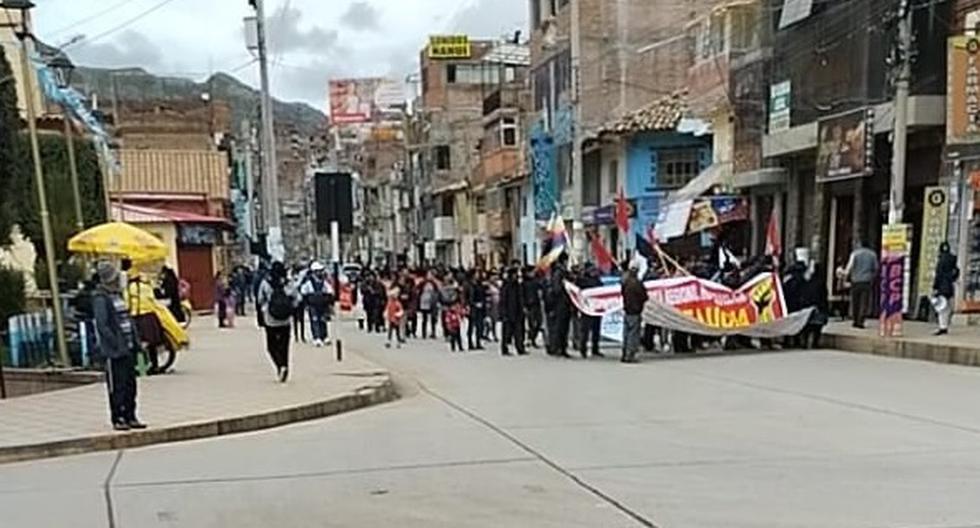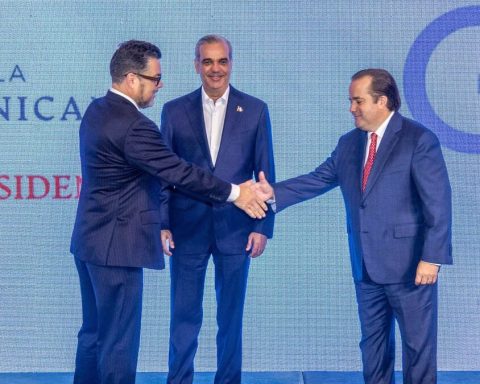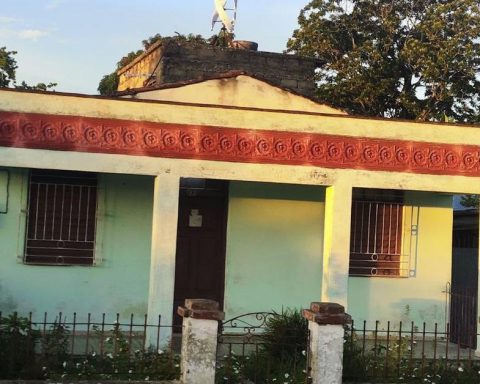In an interview with the program “La Caja Negra”, broadcast by Unicanal, the journalist specialized in the area of politics of the American newspaper The New York Times and writer of the book “Red Card”, Ken Bensingersaid that many people could be brought to the dock in the United States, by exposing the modus operandi of how the payment of bribes for the transmission of sports matches was made.
“There are still many names that we hear but have not yet been charged, it is possible that they will be reached, there are loose things in the case that have not yet been tied up”, he referred. In this sense, he cited Jack Warner, former head of the North American, Central American and Caribbean Soccer Confederation, who is being required by the courts. If the US manages to extradite him, his trial will be “a real spectacle as he is deep down” in the corrupt scheme, adding that “aAlthough they may not believe it, it could also involve South America”.
On the other hand, the interviewee detailed how the first three weeks of the second part of the trial of the case that is being carried out by Brooklyn federal judge Pamela Chen have been lived. In this sense, she explained that the second part of the FIFAgate trial began on January 17. There are several defendants: the Argentine Hernán López and the Mexican Carlos Martínez, who worked for 21st Century Fox with the rights to broadcast matches, and in addition to the representatives of the Argentine sports marketing agency fullplay.
According to the Prosecutor’s Office, apparently these two people were part of a corruption scheme by paying bribes. Full Play is also accused of corruption, and could not avoid the American justice. Ken Bensinger also highlighted that the criminal circuit included Alejandro Burzaco, former owner of the company Torneos (TyC), an audiovisual content producer and organization dedicated to the transmission of sporting events in Argentina. This was the one who exposed the details of how bribes were made.
Swiss Bank paid a fine and endured confiscation.
? “Full Play is also accused of corruption cases, in fact there are many more cases of corruption of FOX officials. Now they must face it now.”
? Ken Bensinger-Journalist for The New York Times.#LCNPy? pic.twitter.com/2vcJsdkj77
— The Black Box (@CajaNegraPy) February 8, 2023
Another key witness is the Argentine Santiago Pena, a former official at Full Play, who kept the company’s financial accounts and was also in charge of paying bribes to the different sports leaders in each country, as the interviewee recalled. “He assigned brand names of vehicles to each other’s accounts as a way of coding, some were Toyota or Chevrolet,” he said.
“Through bribes they obtained rights to the Copa América and qualifiers for the World Cup. For bribes, code names were used to hide the identity of those involved. There were several banks that allowed the movement of money without asking too many questions,” Bensinger said.
Swiss Bank paid a fine and endured confiscation.
? “According to the US Attorney’s Office, part of a corruption scheme was to pay bribes to different Conmebol soccer officials in exchange for their rights.”
? Ken Bensinger-Journalist for The New York Times.#LCNPy? pic.twitter.com/NmtLwsbCM0
— The Black Box (@CajaNegraPy) February 8, 2023
There is three Swiss banks that admitted to being involved in the bribery scheme and they were sanctioned with the payment of multi-million dollar amounts. “The idea of the Prosecutor’s Office is to recover the soccer money that was stolen over the years,” highlighted the journalist specializing in the case that exposed the biggest soccer scandal.
Swiss Bank paid a fine and endured confiscation.
? “There are 3 banks that have been charged by the American courts for their role in this scandal and have accepted their guilt.”
? Ken Bensinger-Journalist for The New York Times.#LCNPy? pic.twitter.com/EpoXtc6H12
— The Black Box (@CajaNegraPy) February 8, 2023
Swiss Bank paid a fine and endured confiscation.
? “The idea of the North American Prosecutor’s Office was precisely that of recovering money from soccer. Both CONMEBOL, CONCACAF and FIFA had claimed that”.
? Ken Bensinger-Journalist for The New York Times.#LCNPy? pic.twitter.com/QAOj1vQHvF
— The Black Box (@CajaNegraPy) February 8, 2023
TRACE SYSTEM IN PARAGUAY
Precisely, the modus operandi applied by the banks sanctioned by the American courts have many similarities with the alleged money laundering scheme between the late leader Nicolás Leoz and the Atlas bank, owned by the Zuccolillo family.
The Swiss bank Julius Baer agreed with the United States Department of Justice to be subject to deferred prosecution in exchange for collaborating by providing complete and truthful information regarding all operations carried out with the defendants in the cause FIFAgate and its heirs.
Julius Baer, a Swiss bank with international operations, admitted to the US court the laundering of more than US$36 million in bribes in the FIFAgate case. Among those involved is former Argentine soccer manager Julio Grondona, who left millions of dollars to his three heirs. In Paraguay, this The same modus operandi was used by the former sports leader Nicolás Leoz and the Atlas bank, of the Zuccolillo family.
In May 2021, the New York Department of Justice reported through a statement that this financial institution admitted before Brooklyn federal judge Pamela Chen that it conspired to launder $36 million in bribes paid to world soccer leaders. The bank made these admissions and signed a three-year deferred prosecution agreement, within which it agrees to return the money earned through the bribery and laundering scheme and to apply strict anti-laundering mechanisms.
As part of this agreement, the bank agreed to pay more than $79 million to US courts (including a fine of $43,320,000 and a forfeiture of $36,368,400) to resolve the investigation into its involvement in the bribery scheme. millionaires paid by sports marketing companies to soccer leaders in exchange for rights to television broadcasts and promotion of tournaments.
Among the sports authorities involved are the former FIFA vice president and former head of the Argentine Football Association (AFA) Julio Grondona, who died in 2014. Throughout the documents they presented to the Court, the investigators refer to Grondona as “Official of the Soccer N° 1″ but they provide sufficient evidence to identify him, such as that he presided over the AFA, who died on July 30, 2014 and left three heirs.
Scheme traced in Paraguay
Nicolás Leoz would also have used the same modus operandi as Grondona to launder money in favor of his heiresses, but in this case using a local bank for this purpose, the Atlas bank owned by the Zuccolillo family.
According to one forensic audit ordered by Conmebol regarding the commercial operations between Banco Atlas and Nicolás Leoz, in February 2016 two contracts of trust between Leoz and the bank of the Zuccolillo family. Both were in February 2016, just 1 month and 4 days after the raid on Conmebol, in the context of the widespread FIFAgate scandal and the house arrest ordered against Leoz.
The Atlas bank ignored the warning signs about Leoz, extradition request and criminal proceedings opened against him and authorized trusts for more than Gs 40 billion. The facts, public and notorious, pointed to Leoz as part of a mafia organization dedicated to fraud and money laundering.
The operations authorized by Atlas allowed the shielding of Leoz’s moneymaking the fund an autonomous patrimony, exempt from possible embargoes and administered by the bank in favor of Leoz and his daughters with the expressly agreed purpose of covering health expenses and legal proceedings.
The bank Atlas did not apply the due diligence procedure stipulated in Law No. 6497 that prevents money laundering and obliges banks to identify the client, prepare a profile of the same that allows determine if you are a “high risk” customer”; verify the legality of your funds and monitor your transactions.
In November 2020, The daughters of Nicolás Leoz ordered the Zuccolillo family bank to return more than G. 8 billion to Conmebol, product of one of the trust contracts that the bank signed with the former sports manager. Leoz’s own family made it clear that the operation at Banco Atlas was shady, and the bank in turn confirmed, by returning part of the money, that funds came out of these trusts as compensation for damages to Conmebol, as a result of conduct attributed to Nicolás Leoz.
If the operation was clean, why did the daughters return the money? It also remains to be answered: How much did the Zuccolillo bank profit with the dirty money diverted by Nicolás Leoz?
The Atlas bank denied information to the US justice about commercial operations with Leoz, alleging “bank secrecy”. The directors of the financial institution have been facing criminal proceedings two years ago for alleged money laundering. The directors of the bank are exposed to possible criminal sanctions in Paraguay for the crime of money laundering and the bank is subject to administrative sanctions and to return the benefits and profits obtained in the trust operations carried out by Nicolás Leoz in favor of his heirs. .






